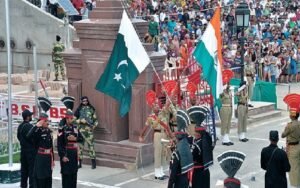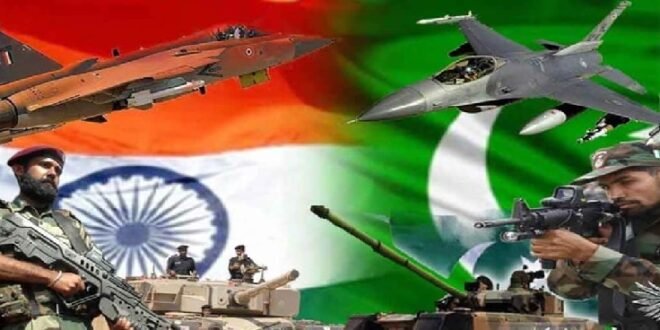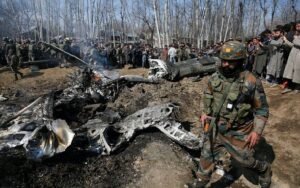12-05-2025
By SJA Jafri
ISLAMABAD/ NEW DELHI: Officially, no. Despite intense military exchanges, including missile strikes, drone attacks, and artillery shelling, neither government made an official declaration of war.
India and Pakistan instead characterized their military actions as specific coordinated “military operations”.
 Pakistan on Saturday launched a retaliatory assault it named “Bunyan Marsoos”, Arabic for “Wall of Lead”, just days after India initiated “Operation Sindoor“, responding to a deadly attack on tourists in Pahalgam on April 22, which it blamed on Pakistan-based armed groups.
Pakistan on Saturday launched a retaliatory assault it named “Bunyan Marsoos”, Arabic for “Wall of Lead”, just days after India initiated “Operation Sindoor“, responding to a deadly attack on tourists in Pahalgam on April 22, which it blamed on Pakistan-based armed groups.
However, that is not unusual for these two countries. They have not officially declared war in previous major conflicts, even as thousands of soldiers and civilians died.
Has third-party intervention solved disputes between India and Pakistan before?
Yes. Third-party mediation has resolved disputes since 1947, when the subcontinent split through partition and India and Pakistan fought their first war. After a yearlong war over ownership of the princely state of Jammu and Kashmir, a United Nations-brokered ceasefire effectively split Kashmir between Indian and Pakistan-administered regions in 1948.
The 1965 Indo-Pakistani War ended with the Tashkent Declaration in January 1966, following mediation by the erstwhile Soviet Union. The accord saw Indian Prime Minister Lal Bahadur Shastri and Pakistani President Ayub Khan agree to pull back to pre-war positions and restore diplomatic and economic ties.
During the 1999 Kargil War, Pakistani troops crossed the LoC and seized Indian positions. Then-US President Bill Clinton convinced Pakistani Prime Minister Nawaz Sharif to withdraw, warning of international isolation.
In 2002, then-US Secretary of State Colin Powell claimed he and his team had mediated the end of a tense stand-off along the LoC following an attack on the Indian Parliament in December 2001. The following June, Powell said that through negotiations, he had received assurances from President Pervez Musharraf of Pakistan that “infiltration activity” across the LoC would cease and that armed groups would be dismantled on Pakistani territory.
There is no single definition. International humanitarian law, such as the Geneva Conventions, uses the term “international armed conflict” instead of “war”, defining it more broadly as any use of armed forces between states, regardless of whether either side calls it a “war”.
In modern international law, all uses of force are categorized as “armed conflict” regardless of justifications such as self-defence, according to Ahmer Bilal Soofi, an advocate in the Supreme Court of Pakistan who also specializes in international law.
The suspension of a treaty can also signal the start of war, he added. India suspended its participation in the landmark Indus Waters Treaty with Pakistan on April 23, a move Pakistan described as a “hostile act”.
“Political scientists normally say a war only exists after fighting becomes quite intense, normally 1,000 battle deaths,” said Christopher Clary, assistant professor of political science at the University at Albany. “For governments, though, wars exist whenever they say so.”
Experts argue the recent escalation in military actions by India and Pakistan was as much about signaling strength as they were about military objectives and was also part of a broader effort to manage domestic and international perception.
 Pressmediaofindia
Pressmediaofindia





